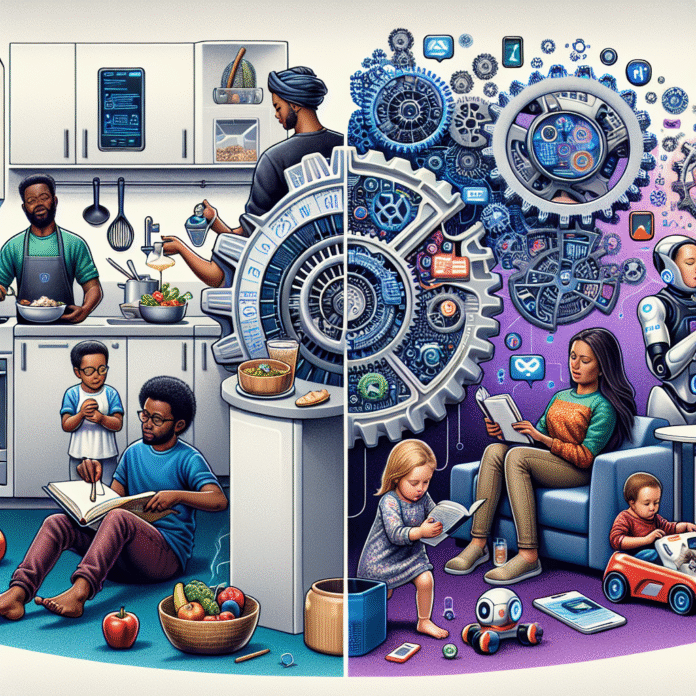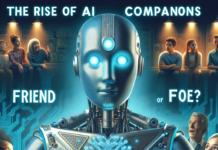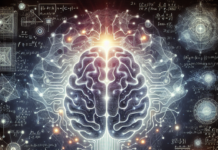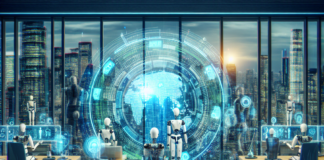Revolutionizing Our World: The Impact of AI on Daily Life
In recent years, artificial intelligence (AI) has transitioned from the realm of science fiction into a reality that profoundly shapes our daily lives. As machine learning, natural language processing, and automation technology continue to evolve, they are transforming not only how we interact with technology but also how we manage our personal and professional lives. This article explores the multifaceted impact of AI on our world, highlighting both the conveniences it offers and the challenges it presents.
Enhancing Daily Tasks and Convenience
One of the most apparent ways AI has revolutionized daily life is through the enhancement of everyday tasks. Smart assistants like Amazon’s Alexa and Apple’s Siri have become ubiquitous in many households, providing users with hands-free capabilities to manage schedules, control smart home devices, and access information instantaneously. These tools reduce the friction associated with completing routine tasks, allowing individuals to allocate time to more meaningful activities.
Moreover, AI-driven applications in transportation have skyrocketed convenience levels. Ride-sharing apps like Uber and Lyft utilize AI algorithms to optimize route selection and enhance user experience, while navigation tools like Google Maps offer real-time traffic updates, helping users arrive at their destinations more efficiently. As self-driving technology continues to develop, the future implies a world where commuting is further improved, ensuring safer and more efficient transportation.
Revolutionizing Workplaces
AI is not just transforming personal life; it is also reshaping workplace dynamics. Intelligent automation systems can handle repetitive tasks such as data entry and customer service inquiries, freeing up significant time for employees to engage in more strategic and creative pursuits. This not only improves productivity but also alleviates job-related stress, leading to more satisfied employees.
Additionally, AI tools like chatbots are changing customer service frameworks, providing 24/7 assistance and reducing wait times. Companies can now leverage AI algorithms to analyze data trends and consumer behavior, leading to more informed decision-making processes. These advancements enable businesses to stay competitive in an ever-evolving market landscape.
Personalization and Consumer Experience
AI has fundamentally transformed the consumer experience by enabling organizations to personalize offerings based on individual preferences. E-commerce giants like Amazon employ AI algorithms to analyze customer behaviors and recommend products tailored to user interests. This personalization extends to media consumption as well, with platforms like Netflix and Spotify curating content based on user preferences, enhancing overall engagement and satisfaction.
Through predictive analytics, businesses can anticipate market trends and consumer behavior, enabling proactive strategies that cater to consumer needs and driving brand loyalty. This personalized experience is increasingly becoming a critical factor in consumer decision-making.
Ethical Concerns and Challenges
Despite the myriad benefits, the rapid integration of AI into daily life raises significant ethical concerns. Issues such as data privacy, algorithmic bias, and job displacement are at the forefront of discussions surrounding AI advancement. The collection and usage of personal data are often opaque, leading to potential misuse and breaches of privacy.
Job displacement due to automation remains a pressing concern. While AI can enhance productivity, it can also lead to job losses in sectors where tasks can be entirely automated. Society must grapple with the balance between embracing innovation and ensuring that the workforce is adequately prepared for the shifts that lie ahead.
Future Prospects
The journey of AI is just beginning, and its potential remains vast. Innovations such as AI in healthcare are poised to lead to breakthroughs in medical diagnostics and personalized treatments. As AI technologies continue to evolve, they promise to tackle complex global challenges, from climate change to healthcare inequities.
However, for society to fully benefit from these advancements, proactive measures are crucial. This includes fostering AI literacy, implementing regulatory frameworks to promote ethical practices, and ensuring that the benefits of AI are equitably distributed across society.
Conclusion
AI has undeniably begun to revolutionize our world, fundamentally altering the way we live, work, and interact. The conveniences and efficiencies it brings are unparalleled, yet the challenges require careful deliberation and strategic management. As we stand on the brink of an AI-driven future, it is imperative that we harness its potential responsibly, ensuring a balanced transformation that benefits everyone. The relationship between humanity and technology is evolving, and with it, the opportunity to create a more efficient, informed, and equitable world.
More read about- Whether it’s improving healthcare diagnostics, powering smart home devices, enhancing navigation systems, or enabling personalized learning, AI is streamlining everyday processes and making life more efficient.







